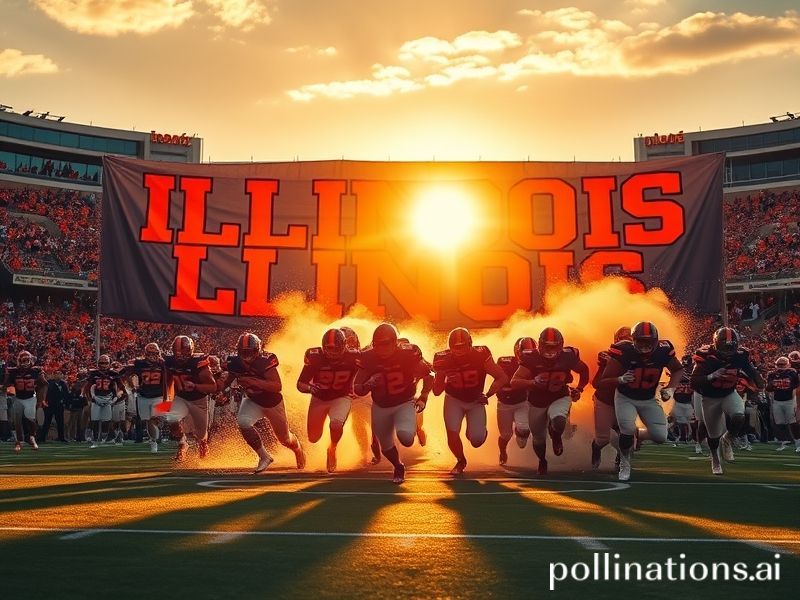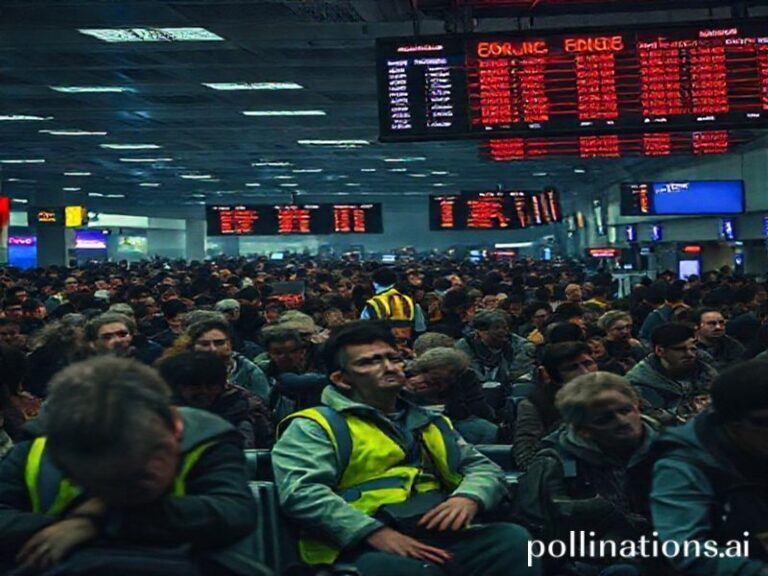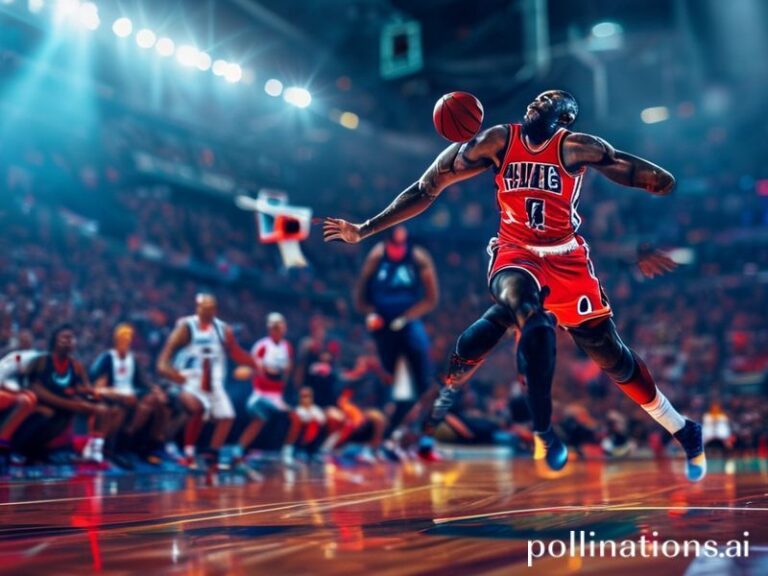Illinois Fighting Illini: The Midwestern Tragedy the World Secretly Bets On
Illinois Fighting Illini Football: America’s Midwestern Morality Play Performed on Astroturf
by Diego S. Krampus, Global Sportswatcher, Dave’s Locker Foreign Bureau
CHAMPAIGN, Illinois – Somewhere between the soy-silos and the endless corn, 60,000 souls gather every autumn Saturday to watch 19-year-olds in orange helmets ritualize failure with the solemnity of a papal conclave. The Illinois Fighting Illini football program—once a Big Ten afterthought, now a Big Ten afterthought with better Wi-Fi—has become an unlikely mirror in which the rest of the planet can study the American condition: unbridled optimism, monetized nostalgia, and the stubborn refusal to admit the playbook is 30 years old.
To foreign eyes, the spectacle is less sport than sociological cabaret. In Europe, we relegate our underperforming giants to second divisions; here, they simply raise ticket prices and commission another bronze statue of a coach who went 6-6. When the Illini lose to Purdue in overtime, it isn’t merely a scoreboard malfunction—it is a referendum on late-stage capitalism, with concession-stand beer priced like Bordeaux futures and the marching band arranged in the shape of a dollar sign.
Global currencies wobble when Illinois wins. The last time the Illini upset Penn State, the Thai baht momentarily spiked; analysts blamed algorithmic trading keyed to Big Ten upsets, but the real reason is simpler: hope is the world’s most volatile commodity. When quarterback Luke Altmyer threads a fourth-quarter touchdown pass, grain futures in São Paulo flutter because somewhere a Chicago trader’s daughter just texted “Dad, we might go to the Citrus Bowl,” and Dad immediately hedged sorghum. The butterfly effect wears cleats.
From Lagos to Lahore, streaming numbers climb. Nigerian data scientists run Monte Carlo simulations on Illinois’ third-down conversion rate, partly for gambling syndicates and partly because, in a world of coup alerts and currency devaluations, watching a team repeatedly try to establish the run against a stacked box provides a rare, almost meditative consistency. There is comfort in predictable futility; it reminds us that entropy, too, has a playbook.
The geopolitical implications are not trivial. The University of Illinois recruits offensive linemen from Samoa, defensive backs from Toronto, and kickers from—bafflingly—Australia, assembling a micro-UN of 300-pound diplomats. Each pancake block is soft power; every missed extra point a minor trade dispute. When the marching band spells “I-L-L” and 40,000 voices answer “I-N-I,” the syllables echo across NATO airwaves like a coded message: the empire still knows how to choreograph obedience.
Meanwhile, the Chinese Ministry of Education monitors ticket-scan data to calibrate how many Tsingtao beers a population will endure before rioting. Their conclusion: three overtimes, maximum. The Kremlin, ever subtle, has planted a mole in the Illini equipment staff; his sole task is to report whether the orange paint used on midfield logos can be weaponized for propaganda purposes. (Answer: yes, but only against Northwestern.)
And what of the players themselves? They are unpaid interns in a billion-dollar drama, carted off the field with ACLs snapped like wishbones, then paraded at alumni fundraisers where boosters in tartan blazers reminisce about the ’83 Liberty Bowl. Their likenesses appear on NCAA-licensed video games sold in Jakarta, yet their compensation remains the timeless currency of “exposure.” Dickensian, yes—but with better lighting and a Jumbotron.
The season will end, as all seasons do, in a low-tier bowl game sponsored by a fintech start-up nobody understands. The final whistle will blow somewhere in Florida that even Floridians avoid. Coaches will speak of “building culture,” fans will sigh into their Bloody Marys, and the international feed will cut to a commercial for crypto-scented deodorant. Somewhere in Switzerland, a futures trader will close his laptop, having hedged against disappointment itself.
And yet, come August, we will all be back—because hope is the most American export, and the Illini, bless their hearts, are its most honest salesmen. They lose so beautifully that even the cynical world watches, if only to remember that failure, too, can be choreographed with brass bands and pyrotechnics. In that sense, Illinois football is not just a team; it is the last wholesome apocalypse on offer.







